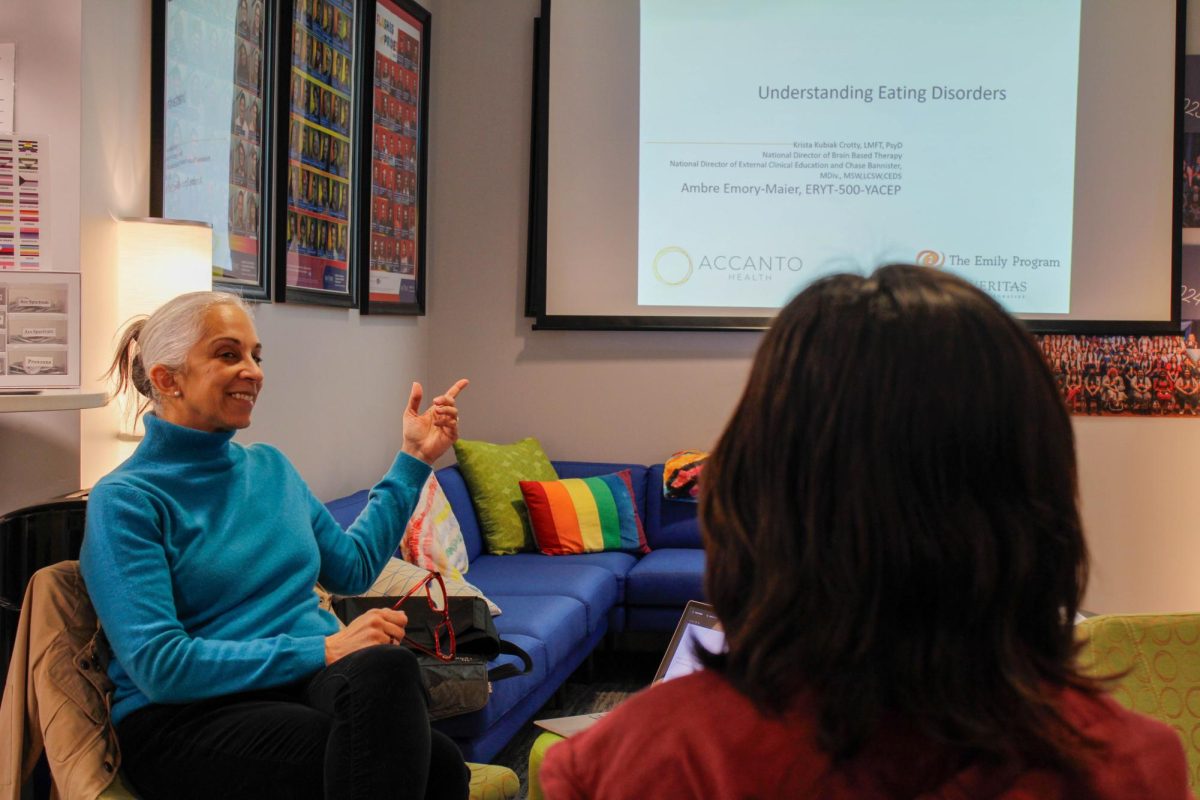According to the Trevor Project, 29% of transgender women and nonbinary people assigned male at birth have reported an undiagnosed eating disorder, and that number is even higher for transgender men and nonbinary people assigned female at birth.
Those statistics inspired the LGBTQ+ Center at Kent State to host a presentation last Thursday, about how eating disorders are more prominent within the queer community than outside of it.
“The main reason why I feel it’s important … is to reduce the stigma around eating disorders and encourage people to seek treatment,” Ambre Emory-Maier, the event’s presenter and an assistant professor of dance, said. “And most importantly, hopefully, as they’re hearing this heavy information and facts, it’s also giving them a sense of hope that they don’t have to live like this for the rest of their lives.”
Emory-Maier’s experience in the field of dance makes her more aware of the serious impact an eating disorder can have on an individual physically and mentally.
“You’re causing a lot of stress to your body and its organs and its systems, and I think people don’t realize the damage that can be done internally to the body with eating disorders, and that some of it is irreversible,” Emory-Maier said. “If you’re genetically disposed to that, on top of that, it can be a real problem.”
According to the Mayo Clinic, “Eating disorders can harm the heart, digestive system, bones, teeth and mouth. They can lead to other diseases. They’re also linked with depression, anxiety, self-harm and suicidal thoughts and behaviors.”
Emory-Maier hopes to expand on the resources the campus already offers for students who need them, therefore, adding to her work with the LGBTQ+ Center and the Emily Program, a system that provides personal, attentive treatment to those with an eating disorder.
“So I’m in the process [of] working with the Dean of Students, Joshua Perkins, to provide more resources to [Counseling and Psychological Services] through my relationship with Accanto Health and the Emily Program,” Emory-Maier said.
Her collaboration with the dean and CAPS aims to ensure information becomes a little bit more widespread and accessible beyond just the LGBTQ+ Center and the School of Theater and Dance, she said.
Due to the obsession with nutritional and wellness sensationalism on social media, misinformation spreads like wildfire. This becomes a greater issue when actual medical school students still get very little training about eating disorders, Emory-Maier said.
Emory-Maier wants people to know change has to start from within.
“It always starts with you and how you’re speaking about eating, how you’re speaking about bodies, how you speak about your own body,” she said. “What I always want to point out to people is there is a part of you that is ok still. We just have to get that part to rise to the surface.”
Olivia Weber is a reporter. You can contact her at [email protected].


